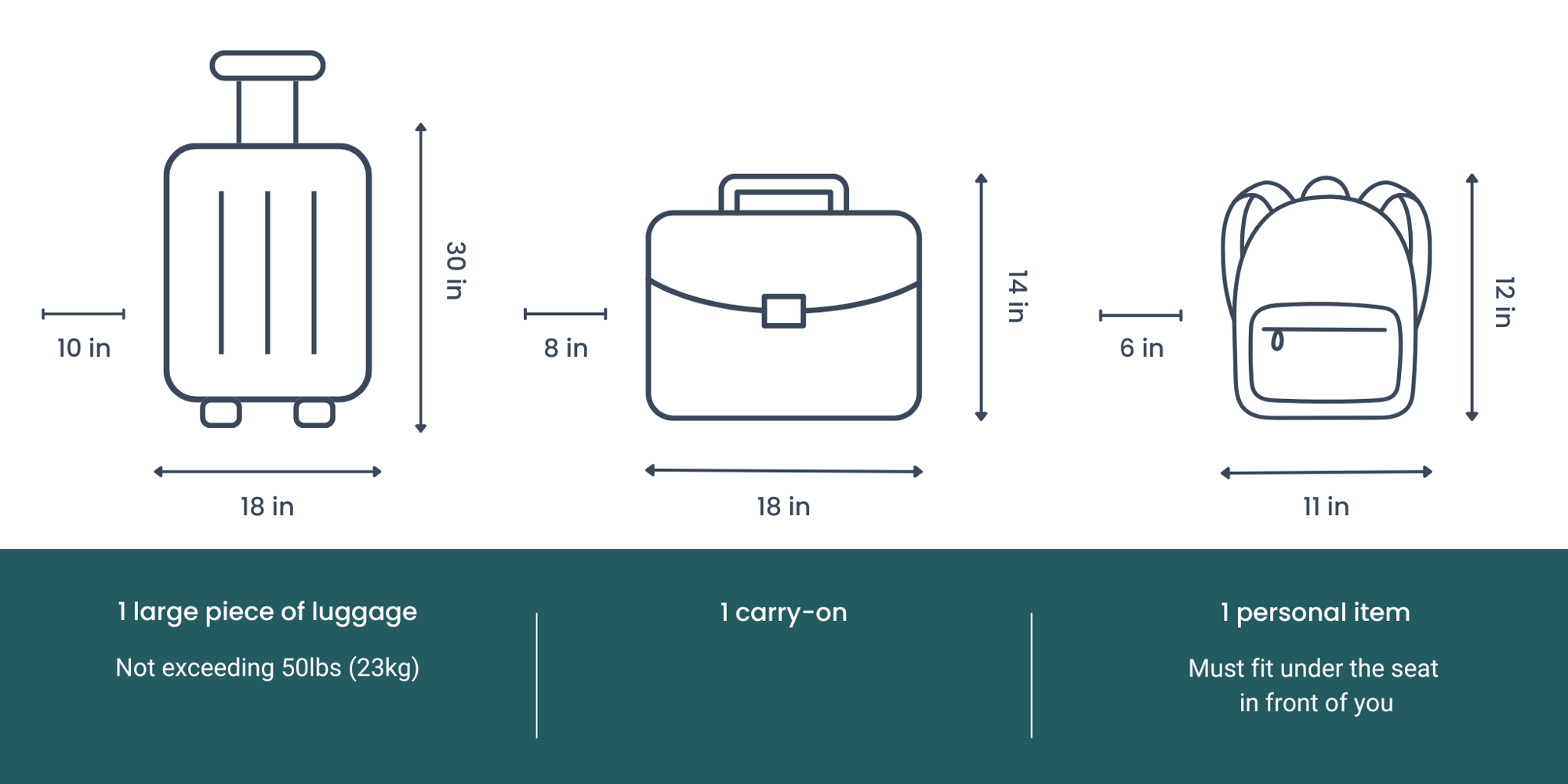Canadian Rockies Winter Destination Guide
This essential guide will help you prepare for an unforgettable winter journey through the Canadian Rockies.
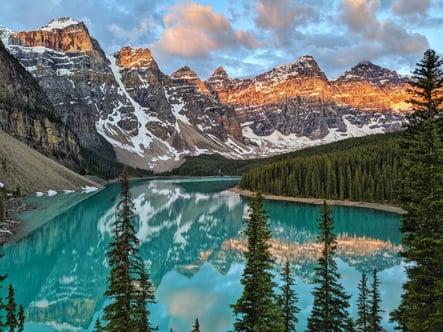
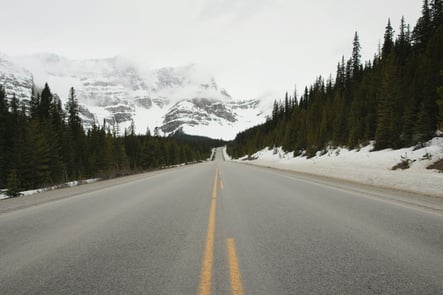
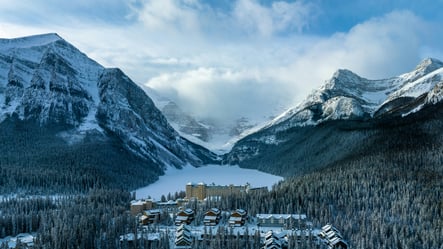
Essential Travel Information for the Canadian Rockies
Everything you need to know before your Canadian Rockies winter adventure
Entry Requirements
- Visa Requirements: Most travelers from the USA, UK, Australia, and EU can enter visa-free for tourism.
- Passport Validity: Must be valid for at least six months beyond your departure date.
- eTA: Visitors from visa-exempt countries need an Electronic Travel Authorization (eTA).
- Health Requirements: Check current vaccination and entry requirements before departure.
Currency & Payments
- Canadian Dollar (CAD) is the official currency.
- ATMs: Widely available in towns and tourist areas. Inform your bank of travel plans.
- Credit Cards: Widely accepted throughout the Rockies, but carry some cash for small businesses.
Mobile & Internet
- Cell Coverage: Good in towns and along major highways, but limited in remote areas.
- WiFi: Available in hotels and cafés, but may be slow in smaller towns.
- SIM Cards: Rogers, Bell, and Telus offer prepaid SIM cards for travelers.
- Power: Type A/B plugs (same as USA), 120V/60Hz electricity.
Winter Weather
- Temperature: Average -5°C to -15°C (23°F to 5°F), but can drop to -30°C (-22°F).
- Snowfall: Significant snow from November through April, especially at higher elevations.
- Daylight: Short winter days with approximately 8 hours of daylight (8am-4pm).
- Weather Changes: Mountain weather can change rapidly - check forecasts daily.
🚗 Transportation
- Winter Tires: Mandatory on most highways from October to April.
- Road Conditions: Check DriveBC or Alberta 511 for current road status.
- Snow Clearance: Major roads are regularly plowed, but mountain passes may close temporarily.
- Shuttles: Consider shuttle services between towns if uncomfortable with winter driving.
- Need help searching for a flight? We recommend Skyscanner.com to compare different routes and rates. Click here to search!
Emergency Information
- Emergency Number: 📞 911 for all emergencies
- Parks Canada Emergency: 📞 403-762-4506 (Banff), 780-852-3100 (Jasper)
- Avalanche Info: Avalanche Canada (avalanche.ca)
- Travel Insurance: Highly recommended, include winter sports and helicopter evacuation
Winter Packing Checklist
Use this checklist to ensure you pack everything needed for the Canadian Rockies during the winter
Winter Clothing Essentials
- Base layers: Thermal/merino wool tops and bottoms
- Mid layers: Fleece or down sweaters
- Outer shell: Waterproof and windproof jacket and pants
- Insulated winter jacket rated for temperatures below -20°C
- Snow pants for winter activities
- Warm hat that covers ears
- Neck gaiter or scarf
- Insulated gloves or mittens (consider liners)
- Thermal underwear
Footwear
- Insulated, waterproof snow boots with good traction
- Ice grips/crampons for walking on icy paths
- Warm indoor shoes for hotels and restaurants
- Thick wool socks (several pairs)
- Gaiters to keep snow out of boots (for deep snow hiking)
Winter Sports Gear
- Ski goggles for protection from snow glare
- Sunglasses with UV protection (snow reflection)
- Hand and foot warmers
- Insulated water bottle or thermos
- Backpack for day trips
- Headlamp (winter days are short)
- Trekking poles with snow baskets
- Consider renting: Skis, snowboards, snowshoes, ice skates
Documents & Essentials
- Passport valid for at least 6 months
- eTA if required for your nationality
- Travel insurance with winter sports coverage
- Driver's license if planning to drive
- Credit cards and cash (Canadian dollars)
- National Park Passes (purchase online or at entry gates)
- Booking confirmations for accommodations and activities
- Emergency contact information
Winter Packing Tips
- Layer, layer, layer! Multiple thin layers trap heat better than one thick layer.
- No cotton: Cotton retains moisture and can make you dangerously cold. Choose wool or synthetic materials.
- Hand warmers are invaluable for keeping extremities warm during outdoor activities.
- Bring a thermos for hot drinks during outdoor adventures.
Physical Preparation
Ensure you're ready for the physical demands of winter hiking in the Canadian Rockies
Training Schedule
You'll need to be able to walk with a pack for several miles. Everyone's starting level of fitness will vary, but here is an example training guide for you:
🕒 First week of training
- Tuesday: 1-hour hike with a daypack
- Thursday: 1-hour hike with a daypack
- Sunday: 2-hour hike with a daypack
📅 Two weeks before the trip
- Monday: 3.5-hour hike with a 20-pound daypack
- Wednesday: 2-hour hike with a 20-pound daypack
- Thursday: 3.5-hour hike with a 20-pound daypack
- Sunday: 7-hour hike with the weight you'll have on your trip
Additional Information
Important details to know before your winter adventure in the Canadian Rockies
As we will be using shared transfers and spaces throughout our tour, we recommend all travelers pack as lightly as possible.
Your tour will be led by a trained, experienced professional with a solid guiding background, years of personal wilderness and hiking experience, medical certifications, and a passion for leading people into breathtaking landscapes.
Our guides carry company-issued first aid kits, satellite phones (for emergencies only), and epinephrine kits (for allergic emergencies).
We provide a diversity of foods containing the necessary nutrition for sustained energy output. Meals are made from staples that travel well - rice, pasta, lentils, beans, couscous, oatmeal, granola, etc. Meals are also supplemented with trail foods such as crackers, cheese, granola, energy bars, fresh and/or dried fruit, and energy drink mixes.
We regularly accommodate vegetarian diets and will make adjustments for food allergies. If you have any allergies or food intolerances, please indicate them clearly on your traveler form.
Please note that this is a participatory experience where all travelers will assist in meal preparation. Guides will lead the cooking, providing clear instructions and oversight, ensuring everyone has an opportunity to learn essential cooking techniques.
ℹ️ Important Notes
- Guide Rest Periods: Guides are required to take 8 hours of each 24-hour period to sleep, recuperate, take personal/downtime, etc. In addition, as part of the 8 hours off, they must sleep/rest or be in their rooms uninterrupted for a minimum of 5 hours each night. We ask guests to respect these requirements and not to interrupt Guides' time off and sleep time unless there is a true (life-threatening) emergency.
- Dietary Requirements: It's critical that you include your dietary needs in your traveler form - it's too late once you've arrived.
Top Winter Destinations & Experiences
Discover the magic of the Canadian Rockies during wintertime

Banff National Park
Canada's oldest national park transforms into a winter paradise with snow-covered peaks and frozen lakes.
Winter Highlights:
- Lake Louise – Ice skating on the frozen lake beneath Victoria Glacier.
- Banff Gondola – Panoramic views of snow-covered mountains.
- Johnston Canyon – Magical frozen waterfalls and ice walks.
- Sunshine Village & Lake Louise Ski Resorts – World-class skiing and snowboarding.
Jasper National Park
Experience the serene beauty of winter in Canada's largest Rocky Mountain park, with fewer crowds than Banff.
Must-Do Winter Activities:
- Maligne Canyon Ice Walk – Explore spectacular frozen waterfalls and ice formations.
- Dark Sky Preserve – Winter offers the best stargazing with longer nights.
- Wildlife Viewing – Spot elk, deer, and possibly wolves against the snow.
- Marmot Basin – Uncrowded slopes with stunning mountain backdrops.
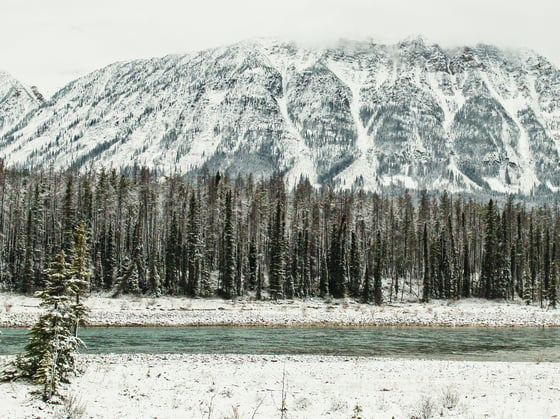
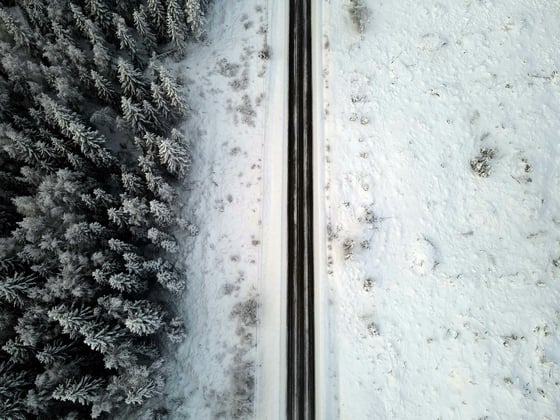
Icefields Parkway
One of the world's most scenic drives becomes even more magical in winter, with fewer tourists.
Winter Travel Tips:
- Road Conditions – Check highway status before departing; the road remains open, but conditions can change rapidly.
- Photography Stops – Bow Lake, Peyto Lake, and Athabasca Falls are stunning when frozen.
- Wildlife Viewing – Better chances to see animals against the white snow.
- Preparation – Carry emergency supplies, as services are limited in winter.
Winter Warming Foods
After a day in the cold, warm up with these Canadian comfort foods that are perfect for winter:
Poutine
French fries topped with cheese curds and hot gravy - the ultimate Canadian comfort food.
Maple Syrup Treats
From pancakes to maple taffy on snow, experience authentic Canadian maple products.
Game Meats
Try elk, bison, or venison at local restaurants for a taste of Canadian wilderness.
Hot Chocolate
Many mountain cafés offer gourmet hot chocolate to warm you after winter activities.
Craft Beer
The Rockies region boasts excellent local breweries with winter seasonal brews.
BeaverTails
Fried dough pastries stretched to look like beaver tails, topped with sweet toppings.
Winter Safety & Responsible Travel
Tips for staying safe and respecting the environment during your winter adventure
Winter Safety
- Avalanche Awareness: Check avalanche forecasts before heading into the backcountry.
- Dress in Layers: Mountain weather can change quickly - proper clothing is essential.
- Stay on Marked Trails: Venturing off-trail in winter can be dangerous.
- Carry Emergency Supplies: Even for short hikes, bring extra food, water, and warm clothing.
- Mind the Ice: Frozen lakes may not be completely safe for crossing.
Wildlife Etiquette
- Keep Distance: Winter is a challenging time for wildlife - never approach or feed animals.
- Animal Crossings: Drive carefully, especially at dawn and dusk when animals are active.
- Store Food Properly: Even in winter, proper food storage prevents habituation.
- Stay Quiet: Enjoy wildlife viewing from a distance without disturbing animals.
- Report Sightings: Let park staff know about significant wildlife sightings.
⚠️ Avalanche Safety Note
The Canadian Rockies have significant avalanche risk in winter. If heading into the backcountry, carry proper safety equipment (beacon, probe, shovel), take an avalanche safety course, and always check the latest avalanche bulletin at avalanche.ca
Tipping
Tipping Suggestions: Tips for guides, drivers and restaurants are not included. Tips provide supplemental income, and, while not mandatory, are greatly appreciated. If the local teams have added to the experience, please reward them.
| Guides | USD $10-15 per person/per day | |
| Drivers | USD $10-15 per person/per day |
Luggage Restrictions
